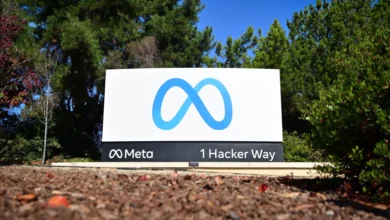
The social media giant Facebook is working on a tool to let users know if they ‘liked’ any of the accounts allegedly pushing Russian propaganda. The company believes some 146 million Americans were exposed to such posts.
The US-based company announced it would create a web page for its users to visit in order to find out if they liked or followed accounts with an alleged pro-Kremlin agenda. The tool would apply to accounts on both Facebook and Instagram, which has been owned by Facebook since 2012.
“This is part of our ongoing effort to protect our platforms and the people who use them from bad actors who try to undermine our democracy,” Facebook said on Wednesday.
Previously, many US officials and media outlets accused Moscow of trying to shift public opinion in favor of Donald Trump in the 2016 presidential election. Russia-linked entities were blamed for using Facebook, Google, and Twitter to influence voters’ opinions on divisive political issues, including LGBT rights, gun laws, and immigration.
The Kremlin has repeatedly denied involvement.
Tool to go online before the end of the year
Facebook has reported the bulk of the alleged propaganda came from the Internet Research Agency, a Russian-based firm believed to have deep ties with the Kremlin. According to US officials, the agency employs hundreds of people whose job it is spread and endorse pro-Russian propaganda on social media.
Some 126 million Americans were exposed to this content on Facebook, with 20 million more also seeing the controversial posts on Instagram, Facebook’s top lawyer Colin Stretch told US lawmakers last month.
Both Facebook and its rival Twitter have since deleted the Russia-linked accounts.
On Wednesday, Facebook displayed a mock-up for the new tool aimed to show users if they liked or followed the suspicious accounts on the platform. However, the portal does not seem able to show individual posts or ads the users may have seen or interacted with. The search would also be limited to the January 2015 – August 2017 timeframe.
The company said the tool would be ready to use before the end of the year.
Lawmakers want more from social networks
Last month, Facebook representatives testified on the alleged Russia involvement before the US Senate Judiciary Committee. The lawmakers have since urged the social media companies to do more to confront the perceived Russian meddling. Some have demanded that the company sends individual notifications to its users who have been exposed to questionable accounts.
Democratic Congressman Adam Schiff called the Wednesday move a “very positive step,” but said that more is needed. He repeated he would like to see a joint report from Facebook and Instagram on “how Russia used these platforms to sow discord and influence the election.”
Twitter banned the ads from RT (formally Russia Today) and the Sputnik news agency in October over election meddling. The unprecedented move prompted anger in Russia.




